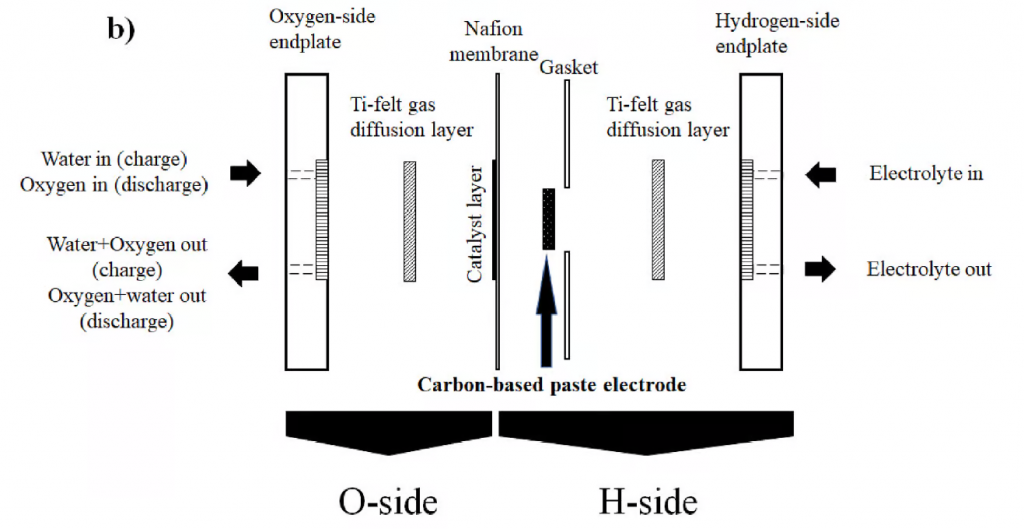Engineers at RMIT have made a groundbreaking advancement in energy storage technology with their latest innovation – a cheap, rechargeable, and recyclable proton flow battery that boasts triple the energy density of previous versions. The significant achievement means that commercially available lithium-ion batteries are now facing tough competition from this newly enhanced proton battery, which offers a specific energy density of 245 Wh/kg, just shy of the current lithium-ion batteries used in Tesla Model 3 battery packs, which deliver approximately 260 Wh/kg.
The key advantage of the proton battery lies in its ability to avoid using lithium altogether, thus mitigating potential issues related to the projected lithium shortage and reducing dependence on China in the battery supply chain. Additionally, this alternative energy storage system addresses various end-of-life concerns associated with conventional batteries.
The proton battery operates differently from traditional hydrogen systems. It works akin to a reversible fuel cell, accepting water during charging and releasing oxygen while splitting positively-charged hydrogen ions. Instead of letting these ions combine into H2 gas and employing energy-intensive processes like compression or super-cooling, the proton battery stores the hydrogen protons directly and immediately. It accomplishes this by utilizing a solid, porous activated carbon electrode soaked in a dilute acid.

In their latest research, the RMIT team focused on improving the oxygen-side reactions of the proton battery. They incorporated several innovative ideas, including vacuum drying of the activated carbon powder before electrode preparation, mild heating of the cell during operation, and using a thinner gas diffusion layer (GDL) fiber sheet on the oxygen side. These enhancements yielded remarkable results, enabling the proton battery to store nearly three times as much energy per weight compared to previous iterations.
With an energy density of 882 joules per gram, equivalent to 245 Wh/kg, the proton battery is now on par with current commercial lithium batteries. When this technology becomes commercially available, it will offer numerous advantages. The proton battery provides a safe and stable means of transporting hydrogen, eliminating the need for high-pressure gas or cryogenic liquids. It is designed for longevity and quick charging, making it a practical solution for various applications.
The proton battery’s price will also be a game-changer because it uses carbon, a plentiful and affordable material, rather than rare and expensive metals like lithium, cobalt, or vanadium. A sustainable approach to energy storage is further ensured by the proton battery’s complete recyclable nature.

Lead researcher and RMIT Professor John Andrews highlighted the potential of this technology, stating that it already exhibits energy-per-unit mass comparable to existing lithium-ion batteries while being safer and more environmentally friendly. Moreover, it boasts energy efficiency similar to lithium-ion batteries, and even more so than conventional hydrogen systems.
While further optimization and system design are underway, the RMIT team is committed to commercializing the proton battery. Collaborating with Eldor Corporation in Melbourne and Italy, they aim to develop a prototype battery capable of meeting the energy storage needs of various domestic and commercial applications. Scaling up the system from watt to kilowatt and ultimately to megawatt capacity is the ultimate goal, promising a cleaner and more efficient future for energy storage and transportation.


